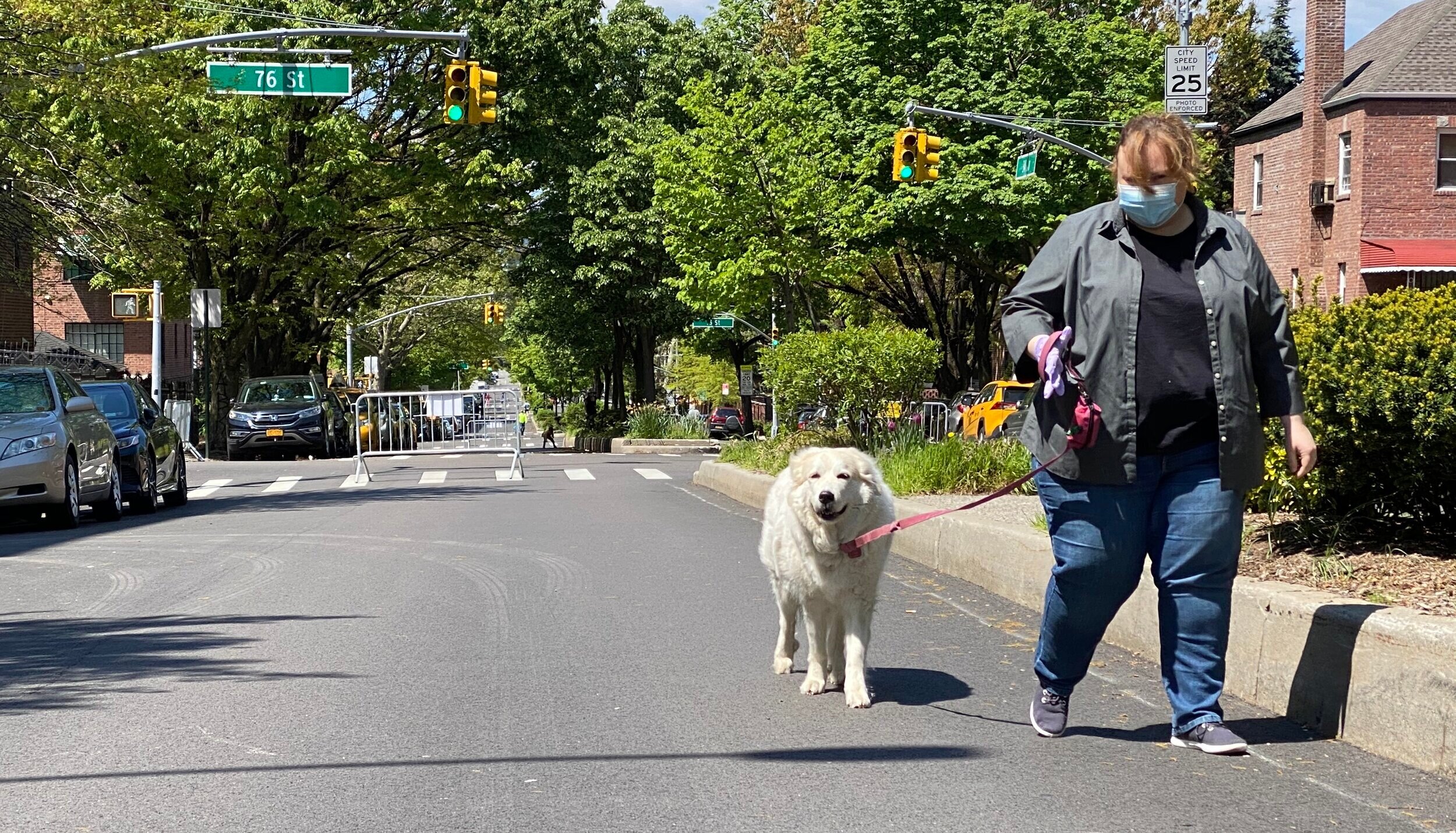Mayor plans park restrictions before opening streets in Southeast Queens
/A Jackson Heights resident walks her dog along 34th Avenue, which the city closed to cars Thursday. Photo by Jeff Simmons
By David Brand
The city may limit access to local parks in order to promote social distancing — a policy proposal that leaves advocates and leaders wondering where New Yorkers will go for fresh air.
Several communities, including all of Southeast Queens, have yet to benefit from a street closure plan designed to let residents roam free during the coronavirus pandemic.
Mayor Bill de Blasio described the broad strokes of a maximum occupancy plan Thursday, a day after the city unveiled a new phase of a gradual initiative to ban cars from a handful of streets.
“We've got some parks that are just, the way they're set up is it's just too easy to have crowding. We can't let that happen and we have to limit the number of people going in,” de Blasio said.
The remarks drew criticism and skepticism from advocates and local leaders, who said any plan to cut off access to parks will force a demand for more public space elsewhere.
“In order to adhere to physical distancing rules while getting some fresh air, we're going to need all the space we can get,” said Transportation Alternatives spokesperson Joe Cutrufo. “Streets account for 80 percent of New York City's public land, so the mayor really needs to expedite his open streets plan, especially in places where access to parks is limited."
So far, the city’s Open Streets plan does include any roadways in Southeast Queens, where black and Latino New Yorkers account for the majority of the population.
“I don’t understand why we don’t have equity with our streets being closed,” said Assemblymember Alicia Hyndman. “We have the capacity to close streets here.”
“We are a community that is used to having block parties and closing streets,” she added.
Assemblymember Alicia Hyndman called on the city to open streets in Southeast Queens and ensure social distancing orders are enforced in an equitable manner. Photo courtesy of Hyndman’s Office
The city has so far banned cars from just five sections of Central and Western Queens, including a stretch of 34th Avenue in Jackson Heights Thursday. The other streets are located in Astoria Park, Flushing Meadows-Corona Park and Forest Park, as well as a short strip near Court Square.
Hyndman and other advocates have also raised concerns about unequal enforcement of social distancing orders against people of color in and around parks. NYPD officers have used aggressive force to arrest New Yorkers of color for not practicing social distancing in encounters captured on cell phone video.
Three people were arrested during an impromptu vigil for a late rapper in Queensbridge Park, located within the nation’s largest public housing development, on Tuesday.
“It’s all about equity for me,” Hyndman said. “When you talk about the disproportionate enforcement in one community and not the other, when we realize all the disparities that existed before, let us not go back to that.
The city has already closed playgrounds, which provide the only public space in certain neighborhoods, said New Yorkers For Parks Director of Outreach and Programming Emily Walker.
Walker called on the city to consider the amount of available public space in communities, particularly low-income communities of color, as part of any plan to limit park access.
“Should the Mayor decide it is necessary to restrict access to parks, we encourage him to do so in a way that is equitable across the city,” she said. “His approach must take into account the fact that there are already many communities suffering from a lack of accessible open space.”





